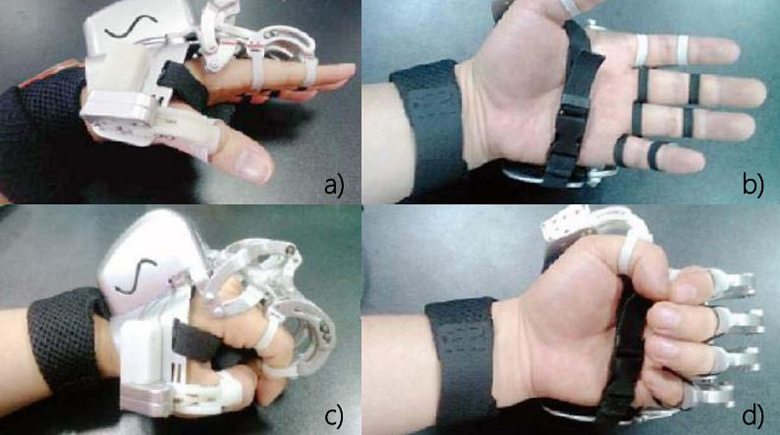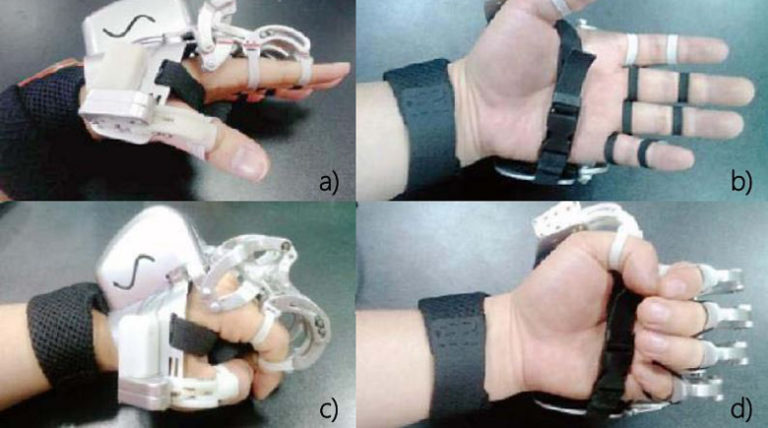
Improvement in hand function to promote functional recovery is one of the major goals of stroke rehabilitation. This paper introduces a newly developed exoskeleton for hand rehabilitation with a user-centered design concept, which integrates the requirements of practical use, mechanical structure and control system. The paper also evaluated the function with two prototypes in a local hospital. Results of functional evaluation showed that significant improvements were found in ARAT (P=0.014), WMFT (P=0.020) and FMA_WH (P=0.021). Increase in the mean values of FMA_SE was observed but without significant difference (P=0.071). The improvement in ARAT score reflects the motor recovery in hand and finger functions. The increased FMA scores suggest there is motor improvement in the whole upper limb, and especially in the hand after the training. The product met patients’ requirements and has practical significance. It is portable, cost effective, easy to use and supports multiple control modes to adapt to different rehabilitation phases.

